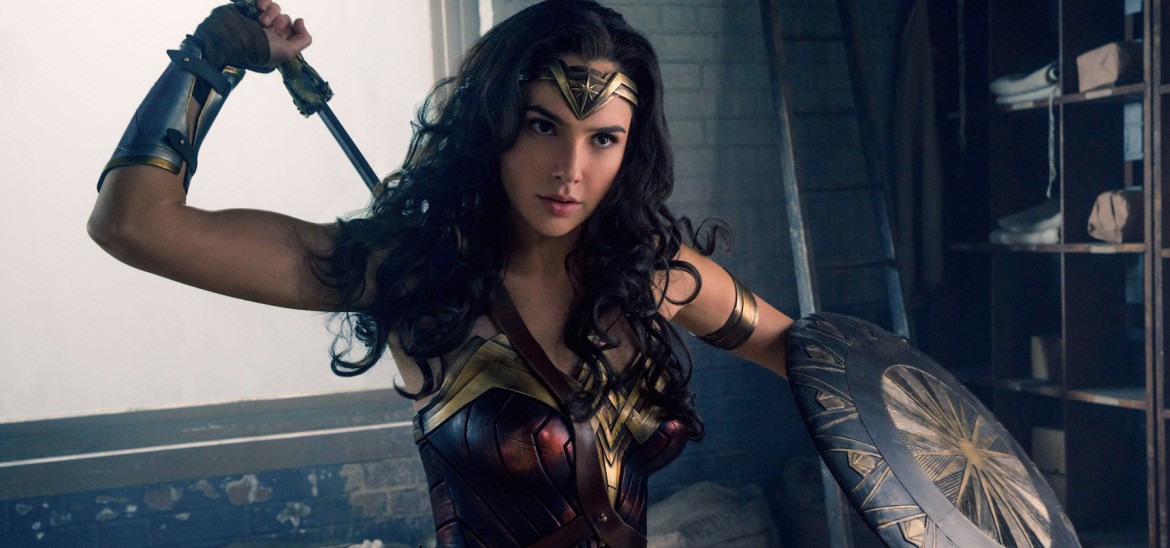Into Film Clubs
Find out everything you need to know about starting an Into Film Club.



More than 75 years since her first appearance in a comic-book - and after stealing the show in 2016's Batman v Superman: Dawn of Justice - Wonder Woman has finally arrived on the big screen for her first solo adventure. Following a mixed reception to earlier titles in the DCEU (D.C. Entertainment Universe), the pressure was on Wonder Woman to deliver with audiences. More importantly, this is also the first superhero film to be fronted by a woman in more than 13 years, following the huge disappointment of 2004's Elektra. Happily, Wonder Woman has already become an enormous hit around the world, inspiring a whole generation of young women in the process.
The saga of bringing Wonder Woman to the big screen has been long and complex. Filmmakers including Ivan Reitman, George Miller and Joss Whedon have all tried to make their own versions of her story over the years, but a series of complications and bad luck meant it never quite happened.
Frustratingly, the notoriously risk-averse film industry was also skeptical about the commercial viability of the property and its leading lady. However, the success of female-driven action films like The Hunger Games helped change their mind. There have also been increasingly loud demands from audiences for more diversity in Hollywood's storytelling and representations of heroism. Many audiences have taken superhero films to their hearts - but they do not want all of them to be fronted by men!
Finally, after working on versions of the film for many years, director Patty Jenkins was entrusted to bring Wonder Woman to the screen. Jenkins was inspired by the character, finding her everything a girl could aspire to be: strong and kind, exciting and stylish, powerful and effective, and just as fierce as the boys. At the same time, the character also stood for love, forgiveness and benevolence in a complicated world.
Wonder Woman - or Diana, princess of the Amazons, as she is also known - has her origins in Greek mythology. The film tells the story of how the all-female Amazons were created in antiquity to help mankind, only to be enslaved by Ares, the god of war. After escaping, they were gifted the secret island of Themyscira to live on by Zeus, the king of the gods, who shielded them away from the rest of the world inside a protective barrier. Led by Queen Hippolyta and her warrior sister Antiope, they lived an idyllic existence - but always training, in order to one day re-emerge and help mankind when it needs them the most. Students of Greek mythology can also look to the likes of Troy, Percy Jackson, Jason and the Argonauts, and even My Fair Lady - adapted from Pygmalion - for further films inspired by the period.
One of the biggest challenges facing the filmmakers was deciding when to set the film. Wonder Woman first appeared in comic-book form in December 1941, around the same time that the United States was entering World War II. At the time, she was seen as standing for truth, justice, and a better world in times of remarkable distress and uncertainty. However, this was ruled out as a setting, possibly because it might have been seen as too similar to rival studio Marvel's own Captain America: The First Avenger.
Eventually, a setting of World War I (or more specifically, the period leading to its ending) was decided upon - meaning Wonder Woman takes place around 100 years before the events of Batman v Superman.
A major factor in this decision was to enable Diana - a commanding female character who hails from a race of strong independent women - to be juxtaposed with the early days of the suffragette movement, when women were still fighting for the vote and other rights. The contrast between Diana - who has never seen a man before, let alone been subject to patriarchal control - and the character of Etta Candy is striking. Etta is a modern woman in 1918, but is also living in London at a time of rampant inequality in what was very much seen as a man's world. The two characters have very different world views, but are both aided by seeing things from different perspectives. The work of the suffragists at this time has also been brilliantly explored recently in British film Suffragette.
The First World War was a conflict in which many long established rules of engagement were irrevocably altered. It was the first mechanised war, where fighting went from close range hand-to-hand combat to being fought at a distance, with soldiers not necessarily being able to see the people they were fighting. This technological change (along with the morally ambiguous nature of the war's politics) called into question the very idea of a 'hero' - a concept that Diana has been raised to believe in and cherish above all else. All of this provided an opportunity for the film to convey the horrors and reality of modern war, as well as being an appealing showcase for one of the world's great superheroes. The Captain America, Iron Man and X-Men films have also placed superheroes into real life conflicts - an artistic choice that can be divisive. For other cinematic takes on World War I, take a look at our curated film list.
The message of the film is that even in dark, morally complex situations, there is room for idealism and doing right by others; that you can be strong and heroic, but also vulnerable and sensitive. It is a message that audiences appear to have latched onto, particularly at a time of such uncertainty and where intolerance seems to be so prevalent.
Fans will not have to wait long for Wonder Woman to make her next appearance - Gal Gadot began filming the DCEU's Justice League team-up movie the day after finishing work on Wonder Woman! And surely it wont be long before she is back in her own adventure. Along with the likes of Captain Marvel and Batgirl, it looks like the foolish idea that superhero films cant be fronted by women has been laid to rest for good.
In the video below, three of our young reporters - Hope, Gili and Ogo - discuss why they feel representation is so important in the film industry, and talk about what it means to them to have a new female superhero like Wonder Woman to look up to.
Viewing 4 of 4 related items.

Get in touch with your article ideas for the News and Views section.